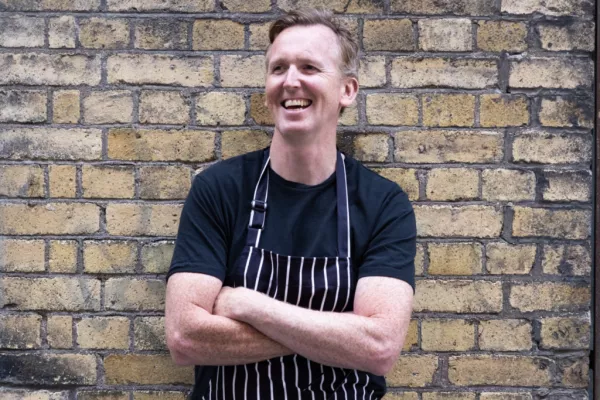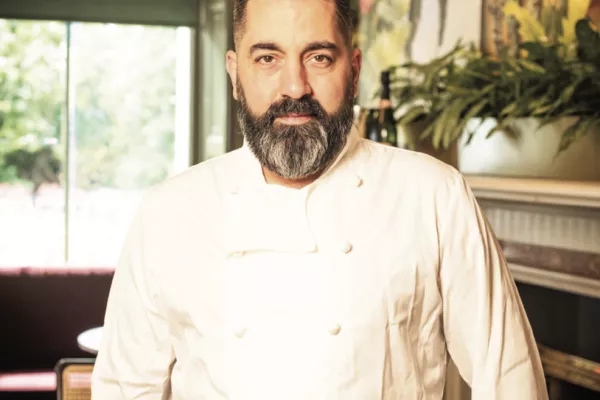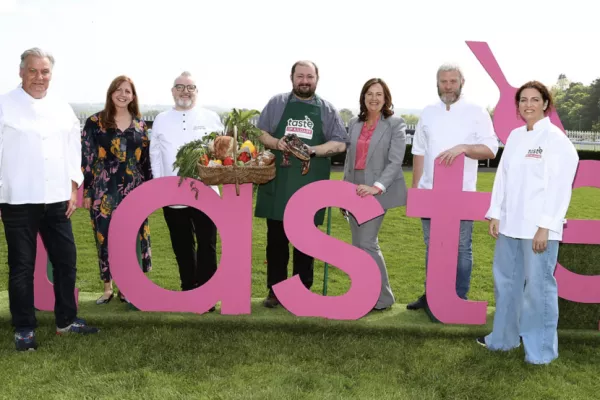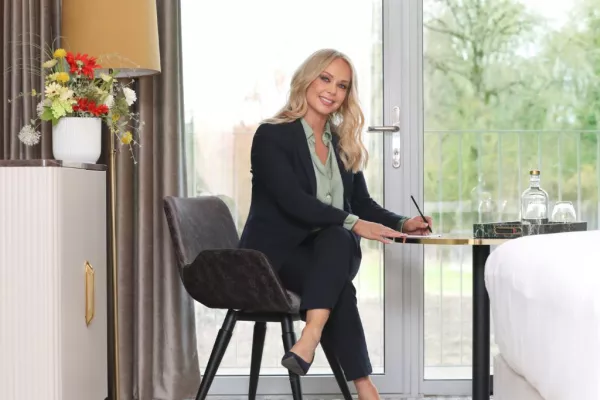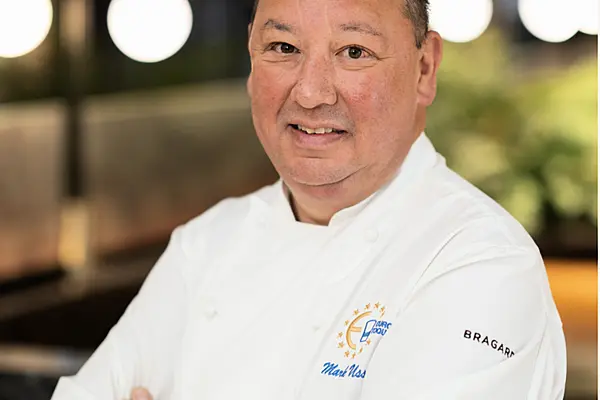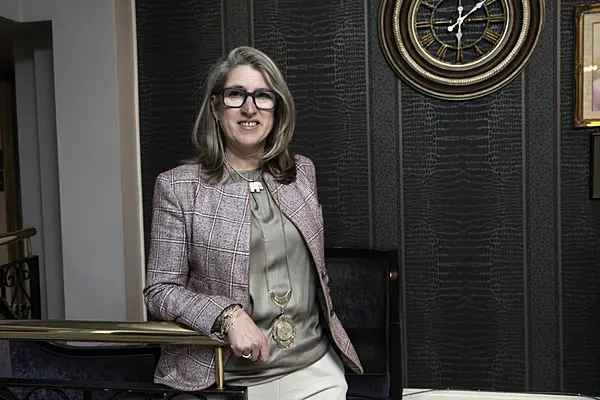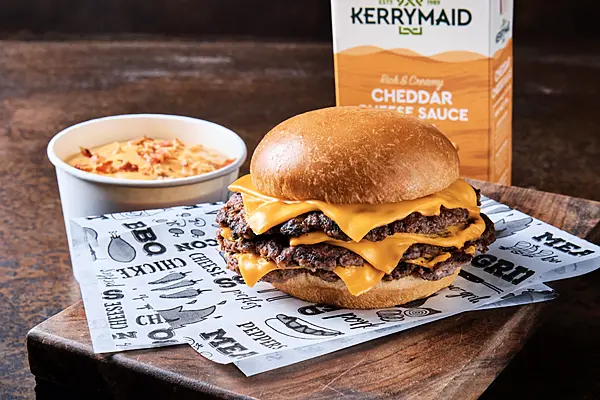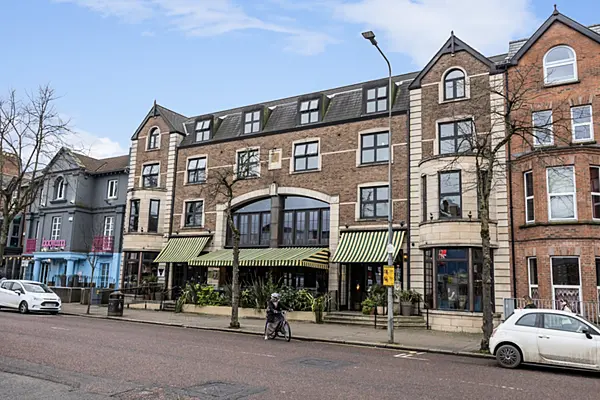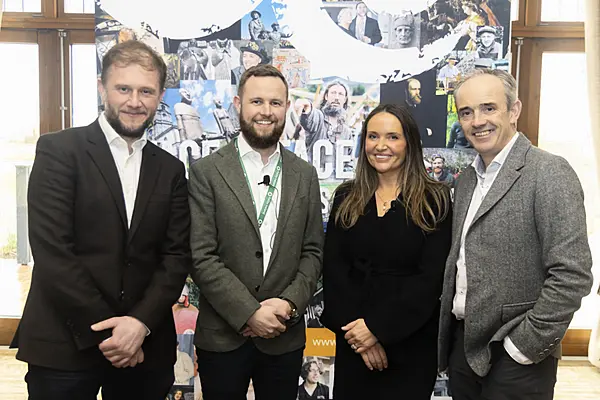Robert McHugh speaks to Stephen Gibson, chef patron at Pichet restaurant, ‘Irish cuisine combined with French flair.’
Stephen Gibson opened Pichet restaurant in 2009, offering a modern blend of Irish and French inspired dishes in the fashionable enclave of Dublin’s Trinity Street.
Despite opening during a recession, the restaurant soon gained a reputation as one of Ireland's most sophisticated dining establishments, winning numerous awards including a Bib Gourmand from the Michelin Guide.
In this interview, Gibson talks to Robert McHugh about not giving up on his dream, moving to France to learn his craft and a phone call that he will never forget.
How does it feel to reach 15 years with Pichet?
It is a huge achievement, a proud moment. The first ten years of this was seriously hard graft, but I feel now I have got to a period where I can enjoy it.
I have a really good head chef in the kitchen. He looks after things when I am running out to do services and meetings. I don't have that same burnout pressure that I had at the start.
Was 2009 a tough year to start up?
Yes. There were so many long days and long nights. The pure level of exhaustion you go through and the fear of failure is huge. When you have pivoted your whole career to open a restaurant, you want it to be a success. You don't want to fail. You don't want people to say, "I knew you wouldn't make it." You have all that pressure.
Do you think your six years at L'ecrivan gave you more confidence than other chefs starting their own restaurant?
Yes, definitely. I was mature enough to know what I wanted to cook. It is funny when you are a chef, you show off in your younger years. It is not a coincidence that the older you get, the more simpler the food gets. It is a natural progression. I had reached that point where all I wanted to do was cook really good, simple food.
What is the ethos of Pichet?
I always say that the food that we serve here is the food that we like to eat ourselves, and the food we like to cook. The tomahawk steak for two is really simple with amazing quality beef from John Stone. You cook it on the coals, rest it, slice it and then you add a really nice sauce.
Harry and myself are very similar in the style of food we like and the simplicity. It's just really good, simple food.
Please tell us about your background – where you grew up, studied, etc.
I grew up in Donegal and went to Killybeggs Catering College. Back in the early 90s, it one of the best places for a young chef to be. Conrad Gallagher and Gary O'Hanlon and many others were there at the same time.
The day after I graduated, I got on a plane and moved to France. I had one friend in Paris and I stayed with him. I remember arriving at Paris Charles de Gaulle Airport and thinking s*** I should have learned French!
What inspired you to move to France?
I just had this burning desire to leave Ireland and see the world. It was hard enough to find a job at the start, but I got a job in an Irish bar. Through that, I was introduced to a chef at a two-star and ended up working there. I lived in Paris for two years and came back to Dublin.
I was back, literally two weeks, and I met up with all my friends and we all decided to go to Australia. I was 20. I worked in Sydney for eight months and then travelled.
When I came back to Ireland, I took a job in La Stampa when Paul Flynn was there. That is what inspired me to go to London to learn my trade because Paul had just returned from Chez Nico in London.
In the meantime, I applied for a job on a cruise ship, QE2, and that came through. I did two contracts on the QE2 and it was amazing, not just from a food point of view. It was a world cruise - Southampton to Southampton in five months. It was an unreal experience.
Did you always have a desire to be a chef?
Yes. I know it is a cliche but my first memory is cooking with my gran and my mum when I six or seven, helping them bake. I have always loved cooking. I have never even thought of another career.
When I came off the QE2, I went to London and I worked in Chez Nico at 90 Park Lane. It was three Michelin star. I did that just to prove to myself that I could work at the top. I was there for a year almost to the day.
Was it a tough apprenticeship?
Mentally tough. You were supposed to start at eight but if you arrived at eight you were already late. You are in the kitchen at seven and you are working until eleven thirty at night. You were doing that five days a week. It is a lot of discipline and endurance.
When I came close to my full year, I took a holiday and I came back to Ireland. I remember going back to work, walking to the kitchen and looking at everyone, and seeing how sick and pale they all appeared. I just thought, "Right, that's it."
I was going out with a Swedish woman at the time so I moved to Sweden, and spent two and a half years in Gothenburg.
Is it hard for a young chef to balance a career with a personal life?
Yes, it is, but when you are young, it is not a problem. The whole social scene for this industry exists, but it is just on a different time zone than everybody else, so you are not really missing out.
The difference is when you get married and have kids and you want to be there for your family. That is when finding that balance is hard.
What do you consider your first major role?
I was 28 when I came back to Dublin. I did a trial in Chapter One and I did a trial in L'Ecrivain, neither of them had stars at the time but they were just really good restaurants. I really liked Derry Clarke's attitude, I felt a connection with him so I took the job with him.
I didn't take a position but pretty much within a month, they promoted me to sous chef in L'Ecrivain. It was my first responsible role, L'Ecrivain was a big kitchen.
It must have been interesting to be with L'Ecrivain on their journey towards a Michelin Star?
I was working there the day they won it, I got the phone call that morning to say that we got a star.
I imagine you will never forget that phone call?
It was probably one of the highlights of my career. I have worked in three, two, one-star places but actually working at a place when they get that star and being part of it. It's pretty special.
With L'Ecrivain, I don't think Derry was actually looking for a star. He was just focused on cooking good food. It was a good buzz because we never expected to get it.
The downfall of many chefs is they get it into their head that they want a star and they start chasing it and it never comes. When this happens, a chef can start making decisions that are not necessarily in the best interest of a restaurant.
What do you like best about your job presently?
There are loads of things I like. I run here and Cafe En Seine. I am constantly interviewing people, bringing staff on board, watching them grow, especially here.
Pichet has got a serious crew of talented chefs. Harry gets to choose the menu here and put on dishes. I get to taste them and say "Wow, that's amazing!" It makes me feel proud that there is still that drive in Pichet. I still like to work, I couldn't not work. I love coming to work every day because each day is different.
What do you think are the main challenges in the industry at the moment?
There are so many. Everybody says the same thing but staff is a huge problem. When the pandemic came, no one knew what was going to happen, so many people got out of the industry, and so many people had this almost like eureka moment, where they realised that it is not a great job to be in for work-life balance. We lost a lot of people in the industry. It is definitely tougher finding staff now.
Produce, like everything, has just gone so expensive, with margins, there is only so much you can increase your menu price before suddenly people stop coming to you. You really have to be careful on menu pricing.
The VAT going up last year has added to all these little things. My mindset is no point moaning about it, get the head down and make it work. You adapt, Pichet has had to adapt.
Before the pandemic, we had quite an extensive a la carte menu. We reopened with a smaller team, not really a choice, but because it was harder to find staff. We reduced the menu size, which is the lightest work with a smaller group of chefs, which I think a lot of places have done. It is just one of the ways that restaurants have tried to survive.
You opened in 2009. Did you ever consider postponing opening your own restaurant due to the economic crash?
No, once we agreed on the premises we just felt "wow." We sat in here one day and we were like, "This place has to be good." It was like we were on a train that couldn't stop.
Everybody else was tightening their belts, places were closing, and there was a big recession coming, everybody was panicking. We knew we had to be really tight with money. When we opened, we were budget conscious the whole time and very careful. One of the reasons that I worked so many hours at start was to keep the costs down.
In a way, that recession in 2009 weeded out a lot of places that were not offering good value to customers. People open a restaurant with no real interest in what a restaurant is about. Places like that disappear because people give you one chance, maybe a second chance and that is it.
What makes a great restaurant?
Consistency and familiarity with customers. There's no one trick pony for a good restaurant.
The welcome that you get when you come to Pichet is a big part of our success here. It's the same group of guys on the floor. Jeremy has been here seven years, all the regulars know him. It's the same in the kitchen, Harry has been with us five years now. Jimmy came to me when he was in transition year in school. He did his transition year placement with me and then came back to work weekends. He went to college, worked with Ross Lewis in Chapter One, went over to London and worked with Heston Blumenthal, he came back here and now he works with me again.
Only two weeks ago, we had a meeting and discovered 60% of all our business at the moment is American tourists. You rely on corporate business big-time from Monday to Wednesday nights. In the summertime, our local clientele are on holidays and you are relying on tourists. It fills the gaps. December looks after itself.
When we were opening in 2009, we met with a PR company at the start and they advised us that it was not a great area where we were opening. It was all about the golden mile from The Shelbourne to L'Ecrivain, that is where everybody seemed to be going for food. They thought that because we were on the verge of Temple Bar, we might find it hard to get customers.
We opened the year after Dylan McGrath opened Rustic Stone around the corner and this whole area just exploded with restaurants.
What do you like to do when you are not working?
I have two kids. I like spending as much time with my wife and family as possible.
Cycling is my big hobby. I cycle 25k a day. I live out by Howth so you have that coastal cycle-path when travelling into work in the morning. It is a great way to clear the head especially in the evening times when you are cycling home.
When you are a chef and service stops, you are still pumped full of adrenaline from a busy night. You need some way to unwind. When I was younger, you might go out for a few pints but cycling suits me now.
I love music and going to gigs.
Do you go back to Donegal often?
Once or twice a year. Both my parents live in Dublin now. My wife is from North Leitrim which is on the border with Donegal so we always shoot across if we are visiting her family.
I worked in Downings for four years as a kid, that's where I started out in Rosapenna. I grew up in Letterkenny but my dad was a big fisherman and we had a boat moored in Downings, in the bay. I took my first summer job in Rosapenna as a commis chef. On my days off, I was out deep sea fishing. The whole of Sheephaven Bay is absolutely beaufitul.
What's the next chapter for Pichet?
I don't know to be honest. I am turning 50 in two weeks. I have spent the first six months of this year thinking about it.
I thought about taking a back seat or not working so much, but the closer I get to my birthday I think I will review things when I'm 60!
I love Pichet and I love coming in here, chatting to the staff, working in the kitchen, time just runs away. You can never take it for granted. You take it week by week. You have a good week, and you are onto the next week, and you hope it is the same.
What do I want for Pichet? That it keeps going. There is definitely another ten years to go, at least.
